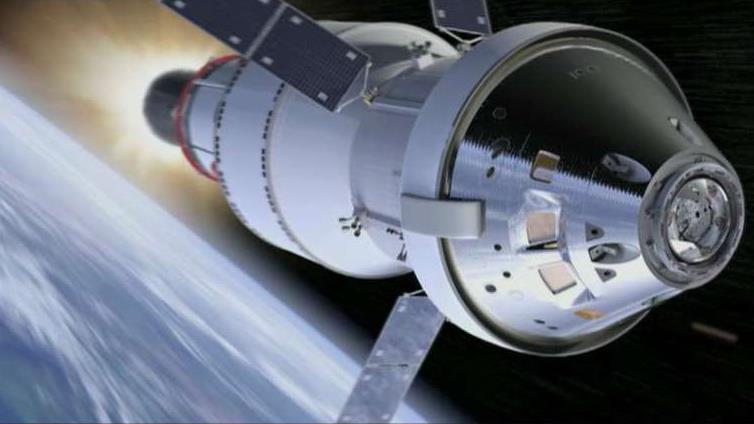Investment in US space industry reaches record levels in 2018
Investors poured a record $3.2 billion into the U.S. space industry in 2018, according to a new study released on Tuesday, spanning both early- and late-stage startups and underscored by increasing interest from venture capitalists.
Overall, nearly $22 billion in outside investment flowed into the sector in the past 18 years, Bryce Space and Technology wrote in its yearly analysis. In 2018, a $750 million investment in Blue Origin from owner and Amazon founder Jeff Bezos and multiple funding rounds at Elon Musk-owned SpaceX helped drive a 26 percent increase over 2017.
While interest balloons -- including from major U.S. companies like Boeing, Goldman Sachs and Morgan Stanley, who all funded space startups in 2018 -- perils remain as early-stage companies grapple with developing a sustainable, commercial business model.
“Some maturing ventures are now generating revenue, but many startup space companies have not yet definitively demonstrated business case success. The overall viability of the start-up space ecosystem will be a critical topic in the next several years,” Bryce wrote in its report.
Backing from venture capital also continued to grow last year. Funding from 113 firms, including 71 companies that had previously not invested in the space industry, grew 22 percent to $2 billion. Sector-wide, the number of investors grew 7 percent as the number of deals rose 8 percent.
The U.S. continues to lead in overall investment, with 80 percent of all funding in the space sector coming from the country. Non-U.S. investment, however, grew 9 percent in 2018, the bulk of which came from China and the U.K.
| Ticker | Security | Last | Change | Change % |
|---|---|---|---|---|
| BA | THE BOEING CO. | 247.68 | -0.06 | -0.02% |
| AMZN | AMAZON.COM INC. | 239.12 | +0.94 | +0.39% |
Advancements in technology are making it much cheaper to launch vehicles into space, driving new interest in an industry that has long been dominated by federal backing. The global space industry could top $1.1 trillion by 2040, according to Morgan Stanley analysts.
Companies like OneWeb, for example, are hoping to offer broadband internet connections to underserved areas by sending thousands of small satellites into low-Earth orbit, drawing investment from Coca-Cola and Japan’s SoftBank.
It’s also changing NASA’s own investment strategy, allowing the agency to take a more venture capitalist mindset to funding promising, but still unproven products.
“If we can do the things we need to do in low-Earth orbit by being a customer, then we can focus on developing capability at the moon, retiring risk at the moon… and then commercializing that activity while we then go on to Mars,” NASA Administrator Jim Bridenstine told FOX Business previously.
CLICK HERE TO GET THE FOX BUSINESS APP
While industry behemoths like Blue Origin, SpaceX and others seek to commercialize space travel for tourism, others are trying to create a business model around Earth imagery for use in weather monitoring, aircraft tracking and other applications.
The growth in outside investment has also spawned a number of cottage industries, including propulsion technology for small satellites, asteroid mining and products for eventual development on the Moon.




















